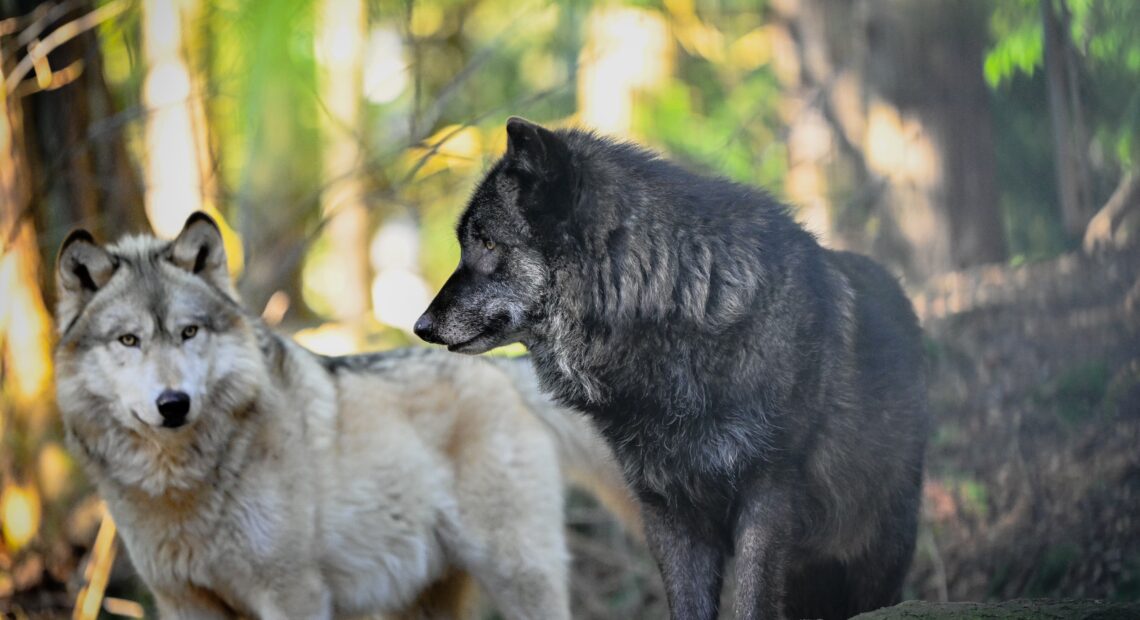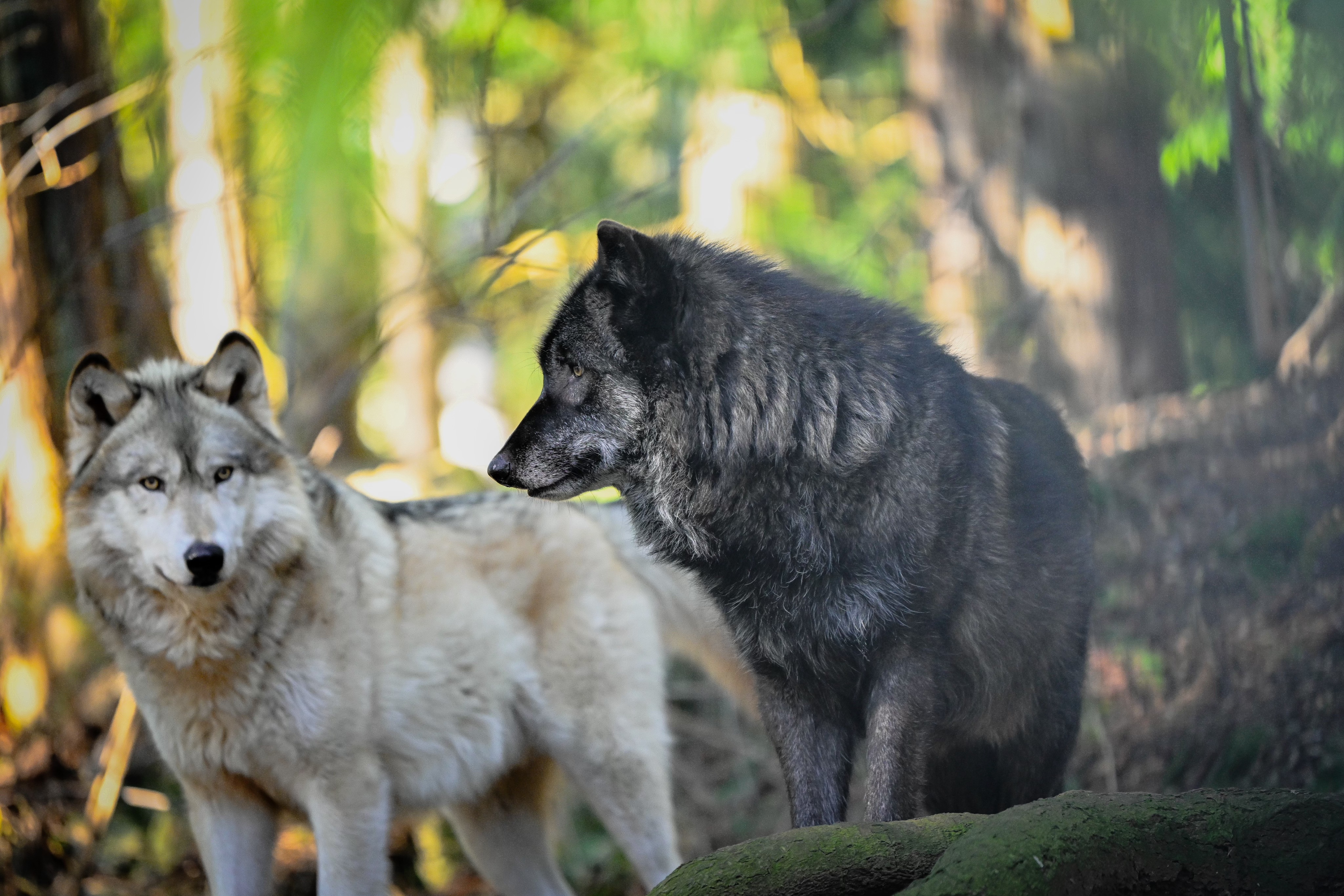
Complaint to federal agency over Washington animal organization
Listen
(Runtime 1:03)
Read
In Skagit County, a nonprofit that houses a number of animals, including exotic ones, is in continued legal battles. A law firm that advocates for animal rights is claiming the organization may have violated the Endangered Species Act by, as the law firm claims in its complaint, the illegal euthanasia of wolves.
The nonprofit, Predators of Heart, denied this claim in an interview with NWPB.
The Animal Legal Defense Fund, based in California, submitted the complaint to the U.S. Fish and Wildlife Service with the intent to have the federal agency investigate Predators of the Heart.
In the complaint, the firm states that the director of Predators of the Heart, Ashley Carr, said her organization euthanized nine wolves in 2022. The firm alleges that this action is illegal, because Predators of the Heart killed wolves without federal or state authorization. The Endangered Species Act necessitates anyone who intends to kill a protected animal be granted a take permit or what is known as a captive-bred wildlife registration, according to the Animal Legal Defense Fund.
But the law firm and Predators of the Heart have different interpretations of what these animals actually are.
The Animal Legal Defense Fund has stated that these animals are likely gray wolves, and are therefore protected under the Endangered Species Act. The law firm points to DNA testing done in a case heard in the U.S. District Court for the Western District of Washington. Four wolves that were born and bred at Predators of the Heart and then transferred to a different facility were found to be wolves, and protected by the Endangered Species Act.
Predators of the Heart has stated that these animals are wolf-dog hybrids, and therefore not protected under the Endangered Species Act. An October 2023 United States Department of Agriculture inspection listed the animals as “wolf/dog hybrids.”
Carr also said that since these animals were bred in captivity, they are not protected under the Endangered Species Act.
While gray wolves are protected in the majority of Washington, there is some nuance when considering animals in captivity.
According to Julia Smith, who is the endangered species recovery section manager for the Washington Department of Fish and Wildlife, gray wolves bred in captivity are not necessarily protected under the Endangered Species Act.
There isn’t an official breeding program for these animals in an attempt to propagate them for reintroduction, as there is with other wolf varieties.
Smith represents the state agency and it is not involved in the complaint.
The complaint also states that Carr has said that if their facility cannot continue operating, the facility would have to euthanize animals that cannot be rehoused.
Last December, Skagit County denied the organization a special use permit, which the county required to allow the organization to be open to the public. With the permit denied, the organization says it has lost its main source of revenue. It has been sustaining itself off of donations, Carr said.
As detailed in reporting by NWPB, the organization has never had this permit, and claims the county never required it until now. The organization has been around for over two decades, but was previously run by Carr’s father. She claims he made poor choices that gave the organization a bad reputation.
“If we were to have to close down, there is a good portion of our animals that would have to be put down because rescues are full,” Carr said in response to the claim that her organization would euthanize some of their animals if they could no longer operate.
Carr said the organization would try to rehouse animals before euthanizing, but said that rescue and sanctuary facilities are full.
“There’s just not enough sanctuaries for animals to go,” she said.
The organization also has several elderly animals, and Carr said given their condition, it may not be safe to transport them.
The closure of the facility for public tours, as well as ongoing litigation, is draining money from the organization, said April Grossruck, a Predators of the Heart board member.
In the hearing last year to determine whether the organization would be granted a special use permit, David Perez, an attorney with the firm Perkins Coie, asked Carr about what had happened to nine animals that were no longer listed at the facility.
The organization euthanized the animals, Carr said. The decision to euthanize the animals was made by herself and the board, Carr said. There were medical reasons that meant the animals had to be euthanized, Carr said, including mental distress exhibited like “figure-eighting,” where an animal paces in a figure-eight in their enclosure. She attributed this to past poor practices by her father, who is no longer involved with the organization.
“We have never, ever, ever euthanized an animal for financial purposes,” Carr said.
She also said some of the animals were elderly and suffering from medical issues and that Predators of the Heart “made the difficult decision to euthanize the animals to relieve them of their pain and suffering.”
Ultimately, the county hearing examiner denied the organization the special use permit. Predators of the Heart is appealing that decision.
So why did the law firm file the complaint with the U.S. Fish and Wildlife Service now?
“We filed this complaint now primarily because we had not been made aware of any action that the Fish and Wildlife Service has yet taken,” said Cristina Kladis, a staff attorney with the firm. “As far as we know, they might not know about these facts. We wanted to bring them to light and make sure that, even after all this time, these statements don’t get forgotten.”
She went on to add, “Why not now, I think, is maybe why.”
Kladis said the law firm would like for the U.S. Fish and Wildlife Service to notify Predators of the Heart that they would need a take permit under the Endangered Species Act if they intended to euthanize any of their wolves.
Predators of the Heart contests the statement that these animals are wolves.
“There are times when the right thing to do might be euthanasia of an animal and that could be, if otherwise the animal is suffering, in a way that can’t be cured or prevented,” Kladis said. “Not having enough resources or not wanting to rehouse the animals is not a legal reason to kill an endangered animal.”
At this time, the Animal Legal Defense Fund said the firm has not received a response from the U.S. Fish and Wildlife Service.
“I think it’s probably likely that we won’t receive any response,” Kladis said.
She said the firm would continue to update the agency if and when they learn more about the situation.
Carr and her organization deny any wrongdoing. Carr frequently appears in social media videos talking about the work she does and showing the facility to viewers.
















